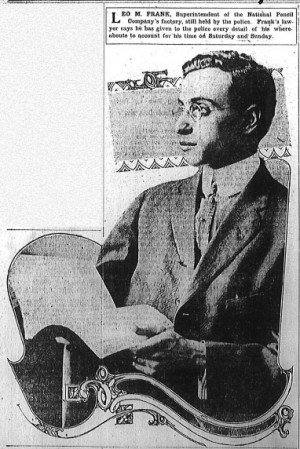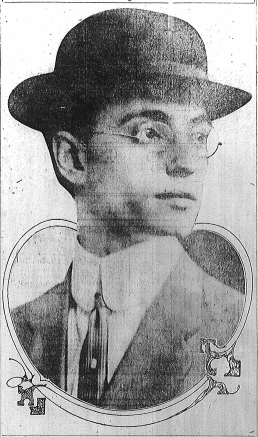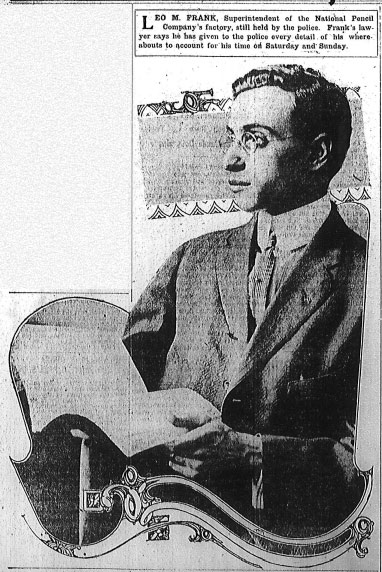
Another in our series of new transcriptions of contemporary articles on the Leo Frank case.
Atlanta Georgian
Wednesday, April 30th, 1913
Leo M. Frank, superintendent of the National Pencil Company and one of the central figures in the sensational murder mystery surrounding the death of little Mary Phagan, is well regarded by a host of friends in Atlanta, who scoff at the idea that he can in any way be implicated in the horrible tragedy.
His friends are all loud in their denunciation of the efforts that have apparently been made to drag his name into the affair as a principal.
Mr. Frank, 28 years of age, a native of Brooklyn, N. Y., came to Atlanta about five years ago to take charge of the plant of the National Pencil Company. Three years later he married Miss Lucille Selig, daughter of Mrs. E. Selig, of 68 East Georgia Avenue, and has since made his home with Mrs. Selig.
Mr. Frank is a mechanical engineer and a graduate of Cornell University, and prior to his coming to Atlanta held a responsible position with the B. F. Sturdevant Co., of Boston, Mass.
Shortly after he came to Atlanta Mr. Frank was sent to Europe to study the art of pencil manufacture and is considered an expert in his line.
 Mr. Frank is popular in Jewish social circles and an interested worker in several Jewish charitable organizations, being president of the local order B’nai B’rith.
Mr. Frank is popular in Jewish social circles and an interested worker in several Jewish charitable organizations, being president of the local order B’nai B’rith.
Several of his most intimate friends seen this morning, among them being Arthur Haas, of the firm of Haas & McIntyre; Isaac Haas, president of the Southern Spring Bed Co., and Arthur Heyman, of the firm of Dorsey, Brewster, Howell & Heyman, were highly incensed at the police actions. They were unanimous in their characterization of him as a clean-cut, manly man, with a zeal for doing good for others.
“The very idea that he could in any way be implicated in this horrible affair is simply preposterous,” several of them said.
Among his employees at the pencil factory Mr. Frank was unusually popular and yesterday when he was taken to headquarters for further questioning by the detectives, several of the girls and women wept bitterly and protested loudly their belief in his absolute innocence of any complicity in the matter whatever.
Mr. Frank is held in high regard by the officers of the company and is admired and respected by those working under him and the belief of those at the factory is that he will be able to establish his absolute innocence of any connection with the crime.
* * *
Atlanta Georgian, April 30th 1913, “Leo Frank’s Friends Denounce Detention,” Leo Frank case newspaper article series (Original PDF)
